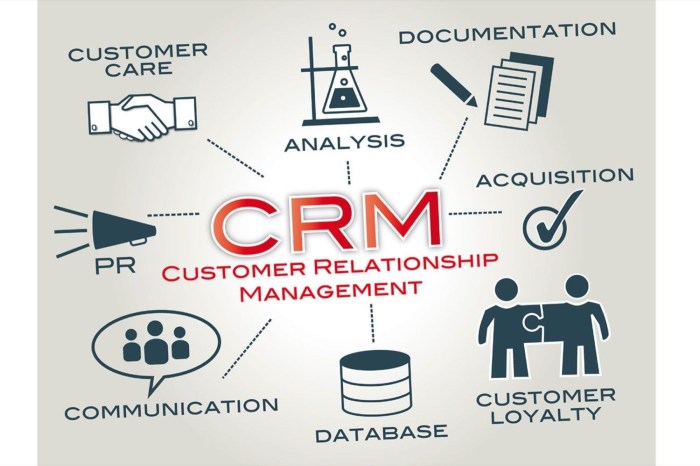Customer relationship management crm helps consumer marketers – Customer relationship management (CRM) has emerged as a game-changer for consumer marketers, enabling them to understand consumer behavior, personalize marketing campaigns, and foster customer loyalty. This comprehensive guide delves into the multifaceted benefits of CRM for consumer marketers, providing practical strategies and insights to help businesses optimize their marketing efforts.
CRM empowers marketers with a centralized platform to manage customer interactions, track marketing performance, and gain valuable insights into consumer preferences. By leveraging CRM effectively, businesses can create targeted marketing campaigns, improve customer engagement, and drive long-term growth.
1. Overview of Customer Relationship Management (CRM)

Customer relationship management (CRM) is a strategic approach that businesses use to manage interactions with their customers. It involves using software and processes to track, analyze, and manage customer data to improve customer satisfaction and loyalty.
Key components of a CRM system include:
- Customer data management
- Marketing automation
- Salesforce automation
- Customer service
- Reporting and analytics
2. Benefits of CRM for Consumer Marketers
CRM provides several benefits for consumer marketers, including:
- Improved understanding of consumer behavior
- Personalized marketing campaigns
- Improved customer loyalty and retention
CRM helps marketers track customer interactions across multiple channels, such as email, social media, and website visits. This data can be used to create detailed customer profiles that include information such as purchase history, preferences, and demographics.
3. CRM Strategies for Consumer Marketers, Customer relationship management crm helps consumer marketers
Effective CRM strategies for consumer marketers include:
- Segmenting consumer audiences based on demographics, interests, and behavior
- Managing customer interactions through a centralized platform
- Using CRM to track and measure marketing performance
Segmentation allows marketers to tailor their marketing campaigns to specific customer groups, while centralized interaction management ensures that customers receive consistent experiences across all channels.
4. Case Studies and Examples

Numerous companies have successfully implemented CRM to improve their marketing efforts. For example, Amazon uses CRM to track customer purchase history and preferences to provide personalized product recommendations.
Starbucks uses CRM to manage its loyalty program, which has over 15 million members. The program allows Starbucks to track customer purchases and reward them for their loyalty.
5. Integration of CRM with Other Marketing Tools: Customer Relationship Management Crm Helps Consumer Marketers
CRM can be integrated with other marketing tools to enhance its functionality.
- Integration with email marketing platforms allows marketers to send personalized emails to customers based on their CRM data.
- Integration with social media management tools allows marketers to track customer interactions on social media and respond to customer inquiries.
- Integration with marketing automation systems allows marketers to automate marketing tasks, such as lead nurturing and email campaigns.
6. Emerging Trends in CRM for Consumer Marketing

Several emerging technologies and trends are shaping the future of CRM for consumer marketing.
- Artificial intelligence (AI) and machine learning (ML) are being used to enhance CRM capabilities, such as customer segmentation and personalized marketing.
- Omnichannel marketing is becoming increasingly important, and CRM systems are being designed to support marketing across multiple channels.
FAQ Corner
What are the key components of a CRM system?
CRM systems typically include modules for managing customer data, tracking interactions, automating marketing campaigns, and generating reports.
How does CRM help marketers understand consumer behavior?
CRM provides marketers with detailed insights into customer demographics, purchase history, preferences, and engagement patterns, enabling them to create targeted marketing campaigns.
What are the benefits of integrating CRM with other marketing tools?
Integrating CRM with email marketing platforms, social media management tools, and marketing automation systems streamlines marketing processes, improves data accuracy, and enhances customer engagement.